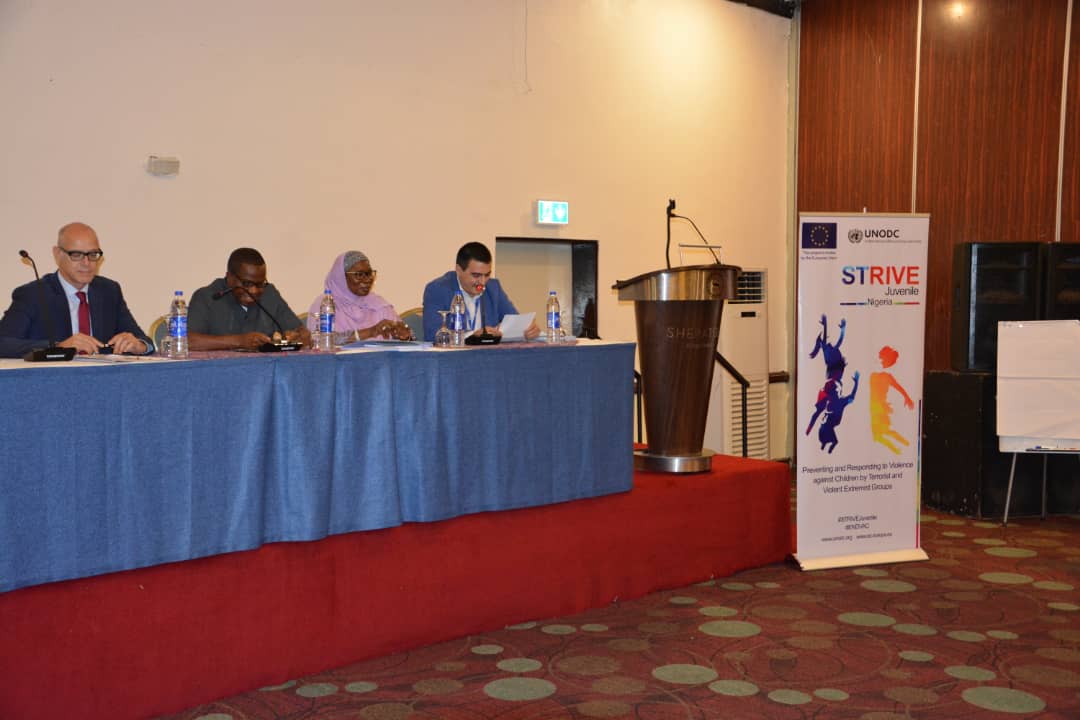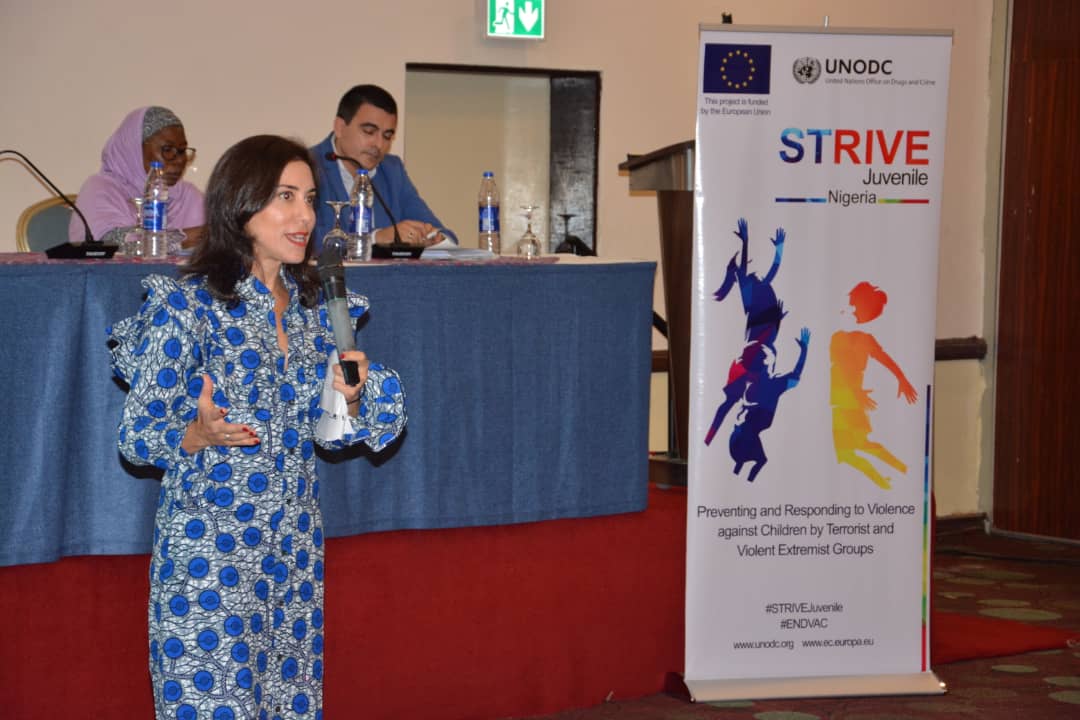UNODC Hosts Capacity-building workshop on the Treatment of Children Associated with Terrorist Groups.
By Naomisophyblog
Abuja, 19th Sept 2022-Terrorist and violent extremist groups’ tactic increasingly focuses on winning the ‘hearts and minds’ of local populations and have become skilled at recruiting and exploiting children for criminal purposes.
In Nigeria, Boko Haram factions use children as spies, slaves and propaganda pawns as well as for the perpetration of violent attacks. The United Nations country task force on monitoring and reporting in Nigeria was able to verify the recruitment and use of 1,385 children by Boko Haram in the three years prior to 2019. Unfortunately, this is likely to represent only a very small proportion of those affected. Recruitment and exploitation expose these children to the risk of early death, injury, psychological scarring and long-lasting rejection from their communities.
An alarming development has been the increasing incidence of bandit groups using similar tactics to recruit children in the north west and north central states. Furthermore, recent months have seen mass defections from the insurgency, with Borno State reporting that over 70,000 fighters and family members (including children) have presented themselves to the authorities. In this context, promoting effective rehabilitation and reintegration of children formerly associated has become a crucial priority.
Read Also:Vehicle Auction: Transport Law To Be Amended, Says Lagos Attorney General
Building on its strong partnership with the Office of the National security Adviser (ONSA) – and through its European Union STRIVE Juvenile Project – the United Nations Office on Drugs and Crime (UNODC), convened a workshop aimed at strengthening the capacity of policy-makers and professionals to prevent and respond to violence against children by terrorist groups. The event was held in Abuja and brought together over 50 participants: representatives from Borno, Adamawa and Yobe states; the federal government; and civil society organizations, including members of the Youth Sounding Board. The focus of discussions was on broad strategies and concrete measures to support these children in recovering from harm and promoting their transition to a constructive role in their communities.
In his opening remarks, Rear Admiral Musa, Coordinator of the Counter-Terrorism Centre, commended STRIVE Juvenile for the progress made, under the leadership of ONSA, in coordinating actions towards a unified and coherent approach to the treatment of children associated with terrorist groups in Nigeria. Rear Admiral Musa emphasized that the primary status of these children is that of victims; and noted that “there is a need to show them that the State is present and will accompany them in their journey towards recovery and reintegration”.
The three-day event was an opportunity for participants to identify challenges; analyse the varied trajectories of children in and out of terrorist groups; and propose concrete strategies to foster effective rehabilitation and reintegration efforts. The potential for achievement of long-lasting peace through the building of bridges between security and child protection – and the meaningful engagement of children, youth and communities in reintegration efforts – was explored in great detail.
Representing the EU Delegation to Nigeria, Mr Ruben Alba Aguilera stressed that “If we realize the importance of children as agents of peace, we will be able to rely on their potential to transform societal dynamics and to move past terrorism” and praised the leading role of Nigeria in advocating for child rights in a complex security context.
Participants welcomed the opportunity for extensive, in-depth exchanges. The workshop is part of a cycle of capacity building events that will continue to mobilize Nigerian stakeholders to ensure that children are better protected from the terrorist threat.

















